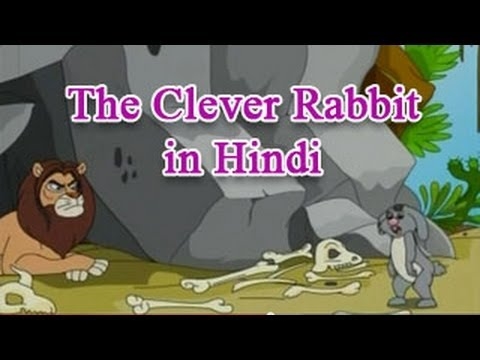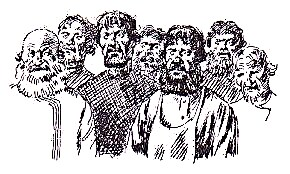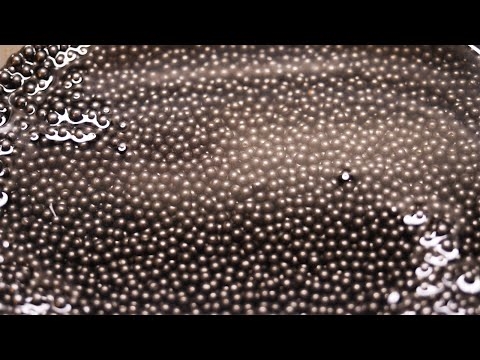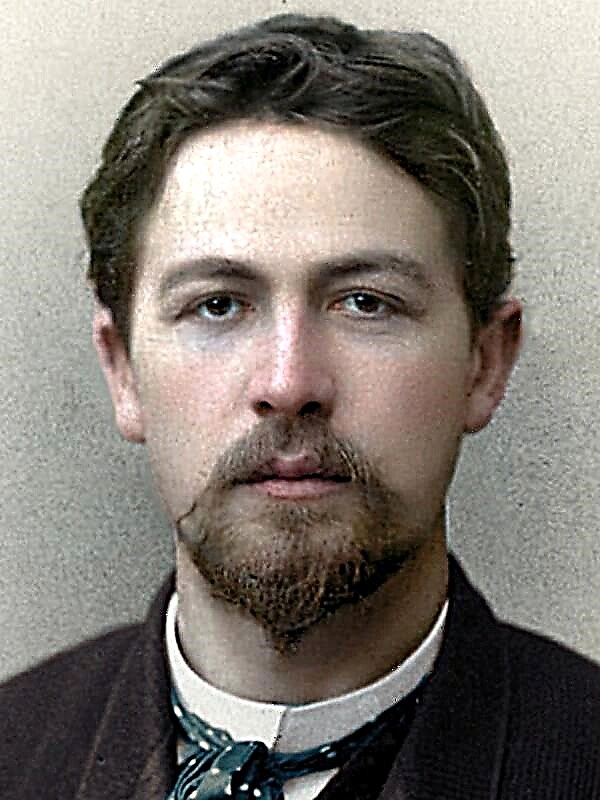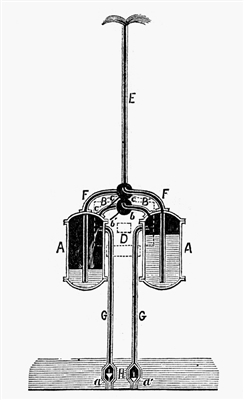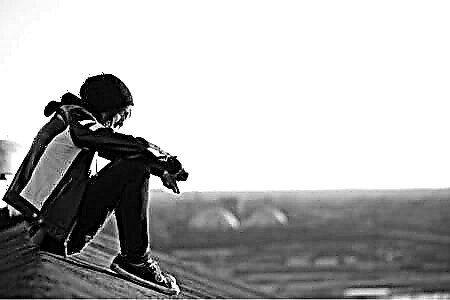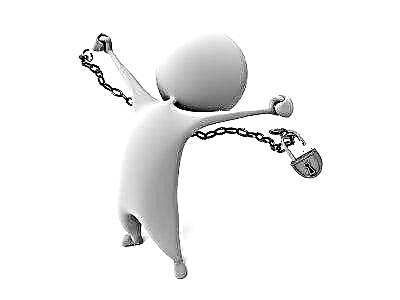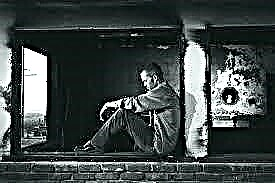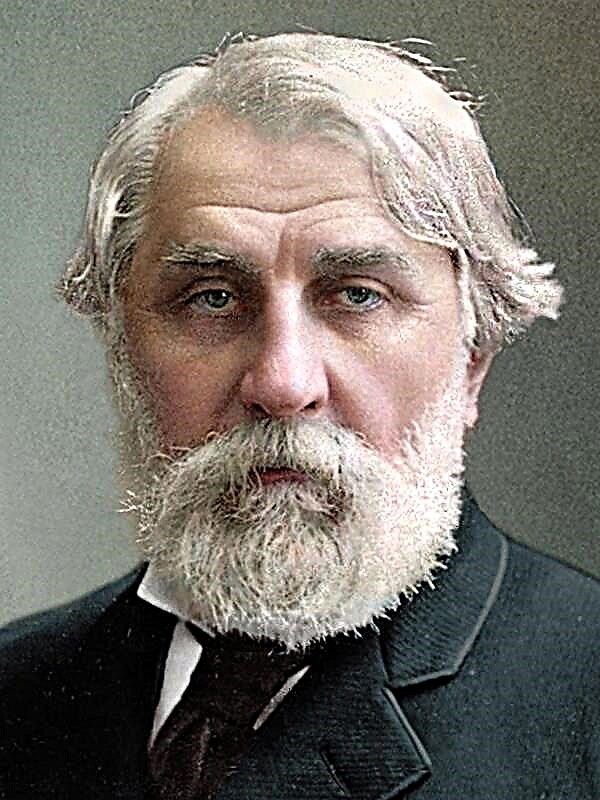In the early spring of 1857, the spouses of Volgin walk along Vladimir Square in St. Petersburg. Twenty-nine-year-old journalist Alexei Ivanovich Volgin is ugly, awkward, and seems phlegmatic. His wife, twenty-three-year-old Lidia Vasilievna Volgina, on the contrary, is attractive, curious and used to produce an effect. During the walk, Volgina is not so much interested in talking with her husband as in helping a young lady named Antonina Dmitrievna Savelova to get rid of the pursuit of a jealous husband. Savelov is trying to watch over his wife during her secret meeting with her lover, Pavel Mikhailovich Nivelzin. Nivelzin is an aristocrat, a rather wealthy landowner, and also a mathematician and astronomer, whose works are published in the bulletins of the Academy of Sciences.
Leaving his wife to engage in an exciting business - someone else's love affair, Volgin talks with a student at the Pedagogical Institute Vladimir Alekseevich Levitsky: he promises a well-known journalist to bring some article for review. In addition, not knowing that the swarthy young lady is Volgin's wife, Levitsky with obvious interest asks him about her. During the conversation, Levitsky is surprised at the strange laugh of a liberal celebrity: "The squeal and roar come out so deafening when he bursts out laughing."
Soon Savelova comes to the Volgin in order to explain her current situation. She does not love her husband, and he does not feel any feelings for her: he needs a wife, a major government official, only to establish himself in an aristocratic society. Volgina persuades Savelova to leave her husband and flee with Nivelzin abroad. Having fallen into exaltation, she agrees, and Volgin, with his usual hobby, is taken for the organization of the case. But at the last minute, when foreign passports are ready, Savelova refuses to leave her husband, which very disappoints Volgin.
Volgina with her young son Volodya lives in a summer house, near the Petrovsky Palace. Her husband is busy with affairs in St. Petersburg and only comes to visit his family. Volgina meets the chamberlain’s daughter Nadezhda Viktorovna Ilatontseva, who recently returned from abroad. Levitsky at that time served in the family of the Ilatontsevs as the governor of Yurinka, the little brother of Nadezhda Viktorovna. However, Volgin tries not to let his wife know about it: noticing her obvious interest in Levitsky, Volgin does not want her to communicate with him. By the way, he tells his wife that he is worried about his future: “the affairs of the Russian people are bad,” so an influential journalist can have all kinds of troubles. Weeping about the fate of her husband, Volgin penetrates him even more. She dreams of her husband being “ever told that he understood before anyone else what was needed for the good of the people, and did not spare for the good of the people — not that“ himself ”- it is very important for him not to pity himself! - He did not spare me either! - And they will say it, I know! “And may Volodya and I be orphans, if necessary!” Volgin expresses these considerations to Nivelzin, who, having lost Savelova’s disposition, begins to look after her.
Volgin himself has other topics for conversation with Nivelzin: they talk about the liberation of the peasants, which Volgin considers premature. And Volgin has no doubt that he understands things more correctly than others.
Once, during an ordinary walk along the Nevsky, Volgina and Nivelzin meet with Mr. Sokolovsky. Thirty-year-old drag officer, a Pole, wants to use all his strength to improve the fate of a Russian soldier. Sokolovsky also gets acquainted with Volgin, but he does not seek to converge with him because of a divergence of views: Volgin believes that reforms should not be carried out at all, rather than carried out in an unsatisfactory manner.
While her husband finds out the relationship among the liberals, Volgina finds out with Savelova: after refusing to escape with Nivelzin, she again tries to get closer to Boltina. Savelova invites Volgin to her husband’s name day, and that reluctantly agrees. At the Savelovs' dinner, Volgin sees Count Chaplin - a disgusting creature “with saggy bruises to the shoulders, with a half-open, slobbery mouth, tapering in succession and expanding with each snuff and snore explosion, with tiny tin-filled eyes that flooded with lard.”
Savelova admits to Volgina that her husband requires her to flirt with the disgusting count on which his career depends. In indignation, Volgin again takes up the organization of the affairs of an alien family: she makes an impression to Savelov, accusing him of selling his wife.
The day after lunch with the Savelovs, Petersburg liberals gather with their leader, university professor Ryazantsev. Volgin is not among the audience. Those discuss Count Chaplin's betrayal of liberal principles and his transfer to the conservative camp. Chaplin accused the liberals of wanting to make the liberation of the peasants a means of overthrowing the entire existing order, that is, to revolutionize. However, soon Count Chaplin retired on vacation abroad, and the liberals celebrate the victory. Now they are preparing a program for the liberation of the peasants, which should be signed by the influential landowners of all the provinces.
Meanwhile, Volgin begins to look for Levitsky, who all this time lived in a village with the Ilatontsevs, but suddenly disappeared. It turns out that Levitsky is sick and is in St. Petersburg. The Volga visit him and wonder why he so hastily left the village. The reasons for this act become clear from Levitsky's diary for 1857, which makes up the second part of the novel.
Student Levitsky was the center of a circle of liberal student youth. By the end of the course, he was sure that the institute was killing the mental life of students, and that, by starvation and despotism, it would forever take away health "from all those who could not come to terms with the principles of servility and obscurantism." Levitsky felt a lively love for people, but believed that they were too frivolous to fight.
Levitsky is loving. Many pages of his diary are dedicated to his mistress Anyuta. Once Levitsky defended Annie from a despot husband, and then he bothered about her divorce. Anyutina's story is simple, just like this woman herself. She came from the middle class, was brought up even in a boarding house, but after the death of her father she was forced to go to the maids. Jealous of Annie to the master, the mistress accused her of stealing a brooch. Annie was forced to become the mistress of a police official in order to avoid an unjust punishment. Soon her patron decided to marry and at the same time married Anyuta.
Annie was a good lover to Levitsky, but she soon moved to live with a wealthy merchant. Separation from her made Levitsky think: “Is it possible to love a woman who passively allows her lover to fondle, while she herself thinks at that time which dress to sew for herself: a voice or a barge?”
In the village, on the Ilatontsevs' estate, Levitsky met the beautiful Mary, the maid of the young lady, Nadezhda Viktorovna. Mary's parents were servants of the Ilatontsevs. Mary lived with the gentlemen abroad, in Provence, then went to Paris, where she received a good salary and could live independently. But soon the girl returned to the previous owners. Levitsky could not understand why the energetic and intelligent Mary exchanged independent life in Paris for the unenviable position of a maid in the Ilatontsev family. Being a sensual and romantic person, he fell in love with Mary. This did not stop him, however, from having fun with the charming and easily accessible Nastya, the serf mistress of his neighbor, the landowner Dedyukhin, and even almost taking her for his maintenance.
Mary told Levitsky that she had become a maid to be closer to Nadezhda Viktorovna, whom she had loved since childhood. But soon, seeing that Levitsky had a sincere feeling for her, Mary confessed: she had long become the lover of Viktor Lvovich Ilatontsev, Bored with the life to which she was doomed by her birth, Mary found the only way to get rid of the wretched fate and seduced her master. He sincerely fell in love with her, left her former lover. Soon, Mary began to become attached to him. But she was afraid that the true state of things would not be revealed to Nadezhda Viktorovna. She believed that Ilatontsev was a bad father, for whom a lover was more expensive than a daughter: after all, the existing marital status could prevent Nadezhda Viktorovna from finding a good husband. Levitsky advised Mary to move to St. Petersburg and live separately from the Ilatontsevs until the marriage of Nadezhda Viktorovna. In preparations for this act, the girl’s further life went.

